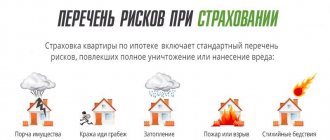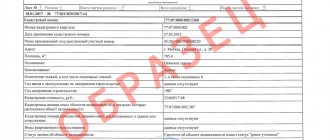The term “fire insurance” has several different names. In practice, “fire insurance” and “fire insurance” are most often used. But “fire insurance” is less common. However, in all cases we are talking about insurance of movable and immovable property in case of damage or loss due to fire. One of the most popular insurance services today is home fire insurance.
Fire insurance
Involves insurance of the policyholder's property interest associated with the ownership, use, and disposal of property. Property (for example, a private house, apartment) is insured voluntarily in case of damage, death due to fire and other risks. The only exception is mortgage lending. In this case, real estate must be insured.
How to insure your home against fire is a pressing question today. In voluntary property insurance, insurance companies set their own rules and conditions. You should familiarize yourself with them before concluding a contract. They do not insure:
- Buildings for demolition, emergency, barracks type.
- Buildings and premises used for commercial purposes.
- Property located on these premises.
Attention! The property insured against fire must be located on the territory of the Russian Federation.
What can you insure your home against?
The risks to which homes are exposed are varied. The likelihood of their occurrence depends on the region of residence and the design of the building.
Most insurance companies on the market undertake to insure the following risks:
- From a fire (not only one that occurred by accident, but also as a result of intentional actions of interested parties);
- From mechanical damage (for example, cracks in walls or floor collapses);
- Accidents in the engineering systems of the house;
- From falling trees, airplane debris, lamp posts;
- Collision with vehicles;
- Natural disasters (flood, hurricanes, rain, hail, lightning);
- From illegal actions of third parties (from arson, theft, burglary, broken glass, damage to the facade, etc.).
Each of the risks listed above includes many others. There are various insurance company programs that allow you to choose a ready-made list of risks or assemble an individual policy from them that will apply specifically to your home.
We recommend reading: Why insure an apartment: about possible risks, cases of compulsory insurance and the cost of the policy.
Risks
The parties voluntarily enter into a house fire insurance contract. It is based on the so-called complex risk. Under this agreement, upon the occurrence of an insured event, the insurer compensates for damage caused by:
- fire (a typical cause is a short circuit in the electrical wiring);
- explosion (for example, gas, water heater, heating boiler);
- natural disaster (most often a lightning strike);
- mechanical damage (this could be the fall of lighting poles or trees);
- illegal actions of third parties (cases of destruction of property, such as arson);
- the fall of a remotely piloted aircraft (RPA);
- the insured (civil liability).
Fire (fire) in the situation under consideration implies the formation of a fire that spreads outside the places that are intended for its breeding and maintenance.
Attention! In many cases, real estate can be insured not only by the owner, but also by another person who bears financial responsibility for the house on the basis of an appropriate document.
It follows that if the potential policyholder is not the owner of the property, then he must have the legal right to use and dispose of it. Only then will he be able to conclude an insurance contract and buy home insurance.
In what cases can insurance and benefits be denied?
The policy may not be issued:
- if your house is old (usually over 50 years old) and is being destroyed (as there is a high risk of an insured event);
- the building is in a risk zone with a probability of an insured event exceeding 99%;
- if the policy already had several insurance precedents.
You will not receive insurance payments if:
- the intentionality of your actions, which led to the occurrence of the insured event, will be established;
- damage occurred as a result of events that are not specified in the contract;
- facts will come to light that you did not interfere with the prevention of the insured event.
Sum insured
We are talking about the amount based on which the amount of the insurance premium (contributions) and insurance compensation is determined. This amount is determined by agreement or law. Often, when talking about it, they mean the maximum amount of the company’s obligations to the policyholder.
When insuring an apartment or the same house in a village against fire, the insured amount may be less than the insured value or equal to it. It should not exceed the actual value of the insured property.
Procedure in the event of an insured event
First of all, whenever possible, all measures should be taken to prevent further damage to the house and property. Report what happened:
- in case of fire - to the state fire service;
- in case of theft or collision of a car - to the internal affairs bodies;
- in case of damage to sewerage and water supply systems - to housing maintenance services.
After this, within two days (be sure to specify the period in the insurance contract), report the incident to your insurance company. Provide an opportunity for an independent commission to inspect the damaged property.
You will also need to write statements about the occurrence of an insured event, submitting the documents necessary to calculate the amount of insurance compensation.
After all procedures have been completed, you will be able to receive your money.
Is it worth buying fire insurance?
Many people consider insurance to be an unnecessary financial burden. But is it? To answer the question, you should compare your financial capabilities, the expected expenses for home insurance and its feasibility.
In order to make your living space as safe as possible, a considerable amount will be required. The result may be worth it, but not everyone has the money for it. Moreover, this will, of course, reduce certain risks, but it is unlikely to completely eliminate them.
Any risks must be assessed correctly. A wooden house, for example, is prone to fire. In case of fire, it can burn completely very quickly. You obviously can’t do this without fire insurance. You simply need to choose the insurance option that is optimal for your budget.
Biased court
If you cannot avoid litigation, it is worth remembering the statute of limitations. According to the Civil Code, it is three years. But in the rules of AlfaStrakhovanie and MSC, the statute of limitations is limited to only two years . “The client can go to court, despite the terms of the contract, the law is stronger,” says independent lawyer Sergei Orekhovsky. And he draws the attention of those wishing to sue the insurer to one more nuance. Insurance disputes are usually considered at the place of registration of the company. It turns out that litigation between clients and large insurers is often conducted by the same judges. Orekhovsky believes that this may reduce the level of their objectivity . Therefore, he recommends filing a lawsuit against the insurer at the client’s place of registration. This can be done on the basis of a decision of the Supreme Court classifying insurance disputes as claims for the protection of consumer rights. Such claims are allowed to be filed at the place of registration of the plaintiff.
How much does insurance cost?
Each insurer has its own price. For comparison, let’s take data from 10 popular insurance companies (in descending order). This will allow you to understand how much home fire insurance can cost today.
| No. _ _ _ | Name of insurance company | Estimated cost (r./year) |
| 1 | Consent Insurance | 6800 |
| 2 | Rosgosstrakh | 4900 |
| 3 | Alpha Insurance | 3600 |
| 4 | Alliance | 3425 |
| 5 | VTB Insurance | 3036 |
| 6 | Ingosstrakh | 3005 |
| 7 | Renaissance Insurance | 2997 |
| 8 | Absolute Insurance | 2250 |
| 9 | Sberbank | 2250 |
| 10 | SOGAZ | 2000 |
From the above data it follows that inexpensive insurance services are offered by SOGAZ, Sberbank, Absolut, and the most expensive ones are Soglasie, Rosgosstrakh, Alfa Insurance.
Is it possible to insure an unregistered house in a dacha association?
Considering official sources, we can come to the conclusion that almost half of country houses are not registered. Despite this, insurance agencies do their best to interest potential clients and come up with various service packages with ways to circumvent this problem.
Why register a country house?
After purchasing a summer cottage, subsequent registration takes place. Unfortunately, not everyone is in a hurry to register a building after its construction, and many do not even want to register it as their property. But it’s worth thinking about this issue, since after registering a residential building you will become its owner. Once this issue is resolved, many opportunities arise, such as selling the house if necessary. If the registration affected only the land plot, then the owner of the house has no rights to the residential building, and it is impossible to sell it.
Are there opportunities to insure an unfinished dacha?
In essence, insuring an unfinished building is not much different from a finished country house. The list indicates the same set of risks, when they arise and after some investigation of what happened. An insurance payment may be awarded.
Insurance of an unfinished house
Conditions for insuring an unfinished house:
- The top of the house must be covered by a full roof.
- Door and window openings must be blocked or boarded up.
In conjunction with cottage insurance, joint insurance of garages, sheds and other outbuildings is possible. In this case, both single and complex insurance is possible.
How the cost of the policy is determined
There are a number of factors that go into determining the cost of home insurance. First of all this:
- sum insured;
- contract time;
- wall material (brick, aerated concrete, wood, foam concrete, etc.);
- the presence of objects that can become a source of fire;
- insured risks;
- discounts.
Thus, insurance on a wooden structure is cheaper than on a brick one. The presence of a fire alarm and bars on the windows reduces its cost.
When insuring a home, insurers usually take the market value as a basis and take into account the cadastral price. As a result, they offer their percentage (0.2–0.3% per year).
What to insure if construction is not completed
As a rule, if a building is constructed to a minimum, most often it is insured only against fire. However, if the client wants to protect his property as much as possible, it makes sense to think not only about fire, but also about water - in some cases, a sewerage breakdown is very likely and can cause great damage.
The house can also be insured against damage caused by vandals and even from falling aircraft debris.
It should be borne in mind that for the insurer, the house is the floor, ceilings, supporting structures and floors. Anything other than this should be specified separately and calculated additionally. If there are many objects on the site that you want to include in insurance, it is necessary to draw up a comprehensive property insurance contract.
How to save on insurance
Every risk has its own price. The more risks included in the insurance, the higher its cost. The best option is to select those risks that are significant and relevant for the policyholder.
Take, for example, earthquake property insurance. This will definitely increase the cost of insurance, but it won’t make much sense. Therefore, it is better to choose the most common risks and pay only for them. For a building in a village it is a lightning strike or a fire. As they say, cheap and cheerful.
Please note: each insurer has its own system of discounts and bonuses. It may provide, for example, discounts of up to 20% for holders of comprehensive insurance and voluntary health insurance.
Home insurance and features of unfinished construction
It is customary to call unfinished housing construction projects that are unfinished and not put into operation. Previously, this service was in demand among official developers - construction companies and holdings. Due to the popularity of country and cottage construction, such insurance products have become relevant for private citizens.
For those who are not yet familiar with the topic of real estate insurance in general, it is worth explaining that the risk of loss is present both for a completed object and for an unfinished one.
The need to insure unfinished housing arises due to various circumstances:
- construction has been frozen for various reasons;
- the integrity of existing buildings has been damaged by the elements, for example, the wind tore off the roof;
- fire destroyed the building;
- vandals or ill-wishers caused damage and destruction.
This list can be further expanded, but these are the situations that are most often listed as insured events in contracts.
Underwater rocks
Insuring an apartment or other property against fire is, in fact, not difficult. But it happens that even here the policyholder, no, no, even comes across an underwater stone hidden for him. Please note the following:
- By taking out insurance without inspecting the insured object, the insurer usually includes the maximum risks.
- Preferential, low insurer rates imply small insurance payments.
- If an insured event occurs and the notification period under the contract is missed, the insurer refuses to pay.
- The conditions for conducting an examination when assessing damage caused to an insured object often provide for payment of the assessment at the expense of the client.
- If the damage is compensated by the guilty party, the insurer reduces the amount of insurance compensation by this amount.
- It happens that the insurer establishes atypical reasons for refusing insurance payment. For example, damage from a fire due to repairs made to the house by the owners is not compensated.
During the contract period, it is important to retain all documents related to the insurance case. Especially those related to payments and costs. If an insured event occurs, they will not allow you to underestimate the amount of insurance compensation.
How to insure a house: step-by-step instructions
There is nothing complicated in applying for a policy, but we will still tell you about the features of this process.
To enter into an agreement with an insurance company, you will need:
- Select an insurance company . If you already have, for example, a car insured by some company, then we recommend that you apply for a policy here (if, of course, you are satisfied with the conditions). This will give you the opportunity to get a discount, and it’s more convenient when everything is in one place. If you have no previous experience of dealing with insurance companies, then follow the advice of your loved ones, focus on the reliability of the company, its reputation and monetary assets (the more, the better);
- Determine the necessary risks . It is important not to indicate everything that the insurer offers. Their benefit is to sell you as much as possible. Choose only those risks whose probability of occurrence is maximum. For example, if there are no other people’s buildings nearby near a country house, then there is no point in insuring civil liability for damage caused to third parties;
- Wait for an appraiser from the company . This is necessary when drawing up an individual contract. If you choose a ready-made program, the policy is concluded without an inventory of property;
- Provide documents . Most often, insurers ask for the policyholder’s passport and documents for housing or land (property rights and technical papers);
- Take out a policy . Read carefully all the conditions specified in it, check with the consultant what does not apply to insurance risks and if any events occur, the insurance company will refuse compensation. Only after receiving all the answers should you sign your name. At this stage, do not forget to check the correctness of your personal data. If there is an error among them, you lose the right to compensation;
- Transfer the insurance premium (policy cost) to a representative of the insurance company . Some of them offer to issue a policy in installments, which is convenient if it is impossible to make a large payment at a time.
Insure real estate online: calculator
You can obtain insurance online on the insurer's website. It is drawn up according to the general principle: calculation - actual registration - receipt of insurance. Typically the following information is required:
- insured object (private house);
- year of construction, area of this object;
- what is insured (interior decoration, movable property, civil liability);
- information about the insured object (what the walls, ceilings, etc. are made of).
Attention! Take advantage of the services of our website. Calculate your home or apartment insurance amount using the following calculator.
Can a shareholder insure a child-care facility?
The shareholder can voluntarily insure the preschool building against unfinished construction. But you need to remember that there are differences between such insurance compared to the developer. It is more difficult for the shareholder to change the terms of the agreement with the insurer, and the compensation itself will depend on the funds invested by the shareholders.
Shareholders benefit from insurance by the developer not of the entire building, but apartment by apartment, since the insurance contract becomes valid from the moment of registration of the DDU.
It is important to know! The occurrence of an insured event is considered to be non-fulfillment or improper fulfillment of one’s obligations to participants in shared construction. This fact must be confirmed by a court decision.
The right to choose an insurer remains with the developer, but the shareholder must have an insurance contract in hand. The minimum amount of compensation depends on the contract price. At the same time, it should not be less than the cost desired for purchasing an apartment and the average market indicator per square meter of housing in the region of the Russian Federation where the development is taking place.
conclusions
Note:
- The ratings of insurance companies, their conditions, insurance and prices - they have differences, and sometimes pitfalls.
- Insuring a house against fire is quite inexpensive if you choose not all risks, but only those that are frequent and necessary for the policyholder.
- The use of discounts and various bonuses reduces the cost of insurance, and its online registration simplifies the entire process.
Still have questions? Contact the duty lawyer on the website. Like and share relevant information.
Read more about home insurance in the housing and communal services receipt.
Required documents
Each insurance company has its own list of documents for real estate insurance. But there are necessary documents for home insurance, which are required by any insurance company:
- Document confirming ownership.
- A document confirming ownership of a land plot.
- Technical documents – residential building plan, technical passport. When concluding an insurance contract remotely, you may need photographs of the house.
This is the main list of documents. In this sense, insurance companies are usually flexible towards clients and try to complete documents without forcing the client to collect tons of different papers.











